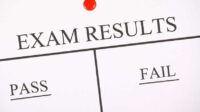The Psychiatry NBME shelf exam is considered to be one of the easiest exams in the NBME series. As a result, students sometimes do not adequately prepare for the exam, and their inadequate preparation is reflected in their scores. Although the information needed to perform well on the psychiatry shelf exam is not as great as that needed for other shelves, students still need a solid understanding of differentiating between similar psychiatric disorders and corresponding pharmacology.
Despite the name of this article, there are no shortcuts to doing well on the psychiatry NBME subject exam. A strong performance on this exam requires diligent preparation and a thorough knowledge of the subject matter. However, there are a handful of high-yield topics that can make a huge difference in the student’s grade.
High-yield topics that are routinely tested on the surgery NBME shelf exam include: adverse medication reactions, antipsychotic medications, mood disorders, mood disorder medications, psychoses and sedative medications.
Adverse medication reactions study tips
- Know that neuroleptic malignant syndrome (NMS) is a potential complication that can result from taking antipsychotic medication. NMS is characterized by fever, muscular rigidity, autonomic instability, altered mental status and elevated levels of creatine phosphokinase. The muscular symptoms result from the dopamine blockade induced by antipsychotic medication, which leads to Parkinson’s-like symptoms.
- Serotonin Syndrome is a potential complication that can result from combining selective serotonin reuptake inhibitors (SSRIs) with monoamine-oxidase inhibitors (MAOIs). SSRIs increase the amount of serotonin in circulation, and MAOIs inhibit the degradation of serotonin. When these medications are simultaneously used, they result in excess amounts of serotonin. Serotonin syndrome is characterized by a combination of cognitive, autonomic and somatic symptoms, including flushing, tachycardia, altered mental status, myoclonus and hyperreflexia. Of note, hyperreflexia helps distinguish serotonin syndrome from NMS, in which patients develop hyporeflexia.
Antipsychotic medication study tips
- Know that antipsychotics function by inhibiting the release of dopamine from the basal ganglia. While the inhibition of dopamine helps control hallucinations and other psychotic symptoms, it can also lead to tardive dyskinesia and other extrapyramidal symptoms.
- Know that atypical antipsychotics, which also inhibit the release of dopamine, are less likely than typical antipsychotics to cause extrapyramidal symptoms. However, atypical antipsychotics have other risks including weight gain, metabolic syndrome and agranulocytosis.
Mood Disorder study tips
- Know that SIGECAPS (changes in sleep, interest, guilt, energy, concentration, appetite, psychomotor symptoms, suicidality) is a quick method of diagnosing major depressive disorder (MDD).
- Know that bipolar disorder is characterized by episodes of mania and episodes of depression. Know that mania consists of abnormally elevated energy levels.
Mood Disorder study medications tips
- Know that SSRIs are not only the treatment of choice for major depressive disorder, but they are also the treatment of choice for many psychiatric disorders, including obsessive-compulsive disorder and chronic treatment for anxiety disorders.
- Know that lithium is the treatment of choice for bipolar disorder. Know that lithium levels most be closely monitored, as lithium toxicity can lead to nephrogenic diabetes insipidus. Lithium is also contraindicated in pregnancy, as it can lead to Ebstein’s anomaly in the fetus.
Psychoses study tips
- Know that psychotic disorders have similar presentations, with the primary difference being the length of symptoms in each disorder. For example, patients diagnosed with schizophrenia must have delusions and/or hallucinations affecting their lives for at least 6 months. Patients with schizophreniform disorder have psychotic symptoms for more than 1 month, but less than 6 months. Patients with brief psychotic disorder have psychotic symptoms for less than 1 month.
- Know that schizoaffective disorder is characterized by psychotic symptoms and components of mood disorders.
These are only some of the content that will be tested on your psychiatry NBME shelf exam, but these tips will help guide your studying. Remember that common things are common on the exam, and let your instincts based on solid studying guide you when you are unsure of the correct answer.




